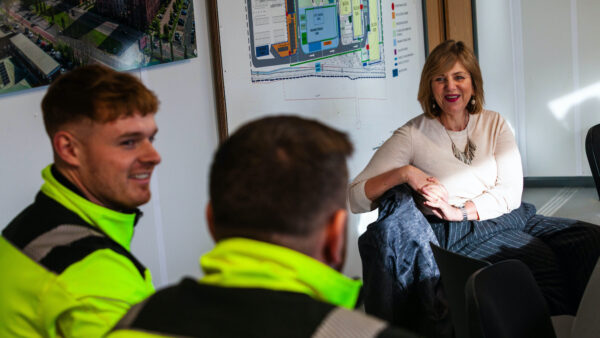Due to the specialist nature of construction disputes it is unsurprising that a party’s success in litigation can turn on the expert appointed and the quality of expert evidence given.
In the recent case of Van Oord UK Ltd and another v Allseas UK Ltd the expert appointed by the claimant was heavily criticised for not only the reports he produced but the evidence given at trial. The expert’s errors led the judge to conclude that his evidence should be disregarded.
This is not a paywall. Registration allows us to enhance your experience across Construction Management and ensure we deliver you quality editorial content.
Registering also means you can manage your own CPDs, comments, newsletter sign-ups and privacy settings.
The judge’s criticism of the expert has highlighted the importance of appointing a competent and experienced expert and serves as a salutary lesson on appointing and managing an expert for litigation.
An expert’s duty
An expert’s duty is primarily to the court and this overrides any obligations they may have towards the party instructing them or paying their fees. The expert’s role is to assist the court by providing objective and unbiased opinions on the matters within their expertise.
It is therefore imperative that any expert is independent and critical of the information presented to them by their client, and that the expert only comments on that which is within their area of expertise without looking to assume the role of an advocate or mediator.
The judge in the Van Oord case stated that Van Oord’s appointed expert gave evidence that “was entirely worthless” and highlighted 12 reasons for reaching this conclusion. The judge found that the expert:
- took Van Oord’s pleaded claims at face value and did not check the underlying documents that supported or undermined them;
- only looked at the witness statements prepared on behalf of Van Oord and even copied controversial parts of the witness statement into his report;
- did not agree figures based on both his own and other side’s case despite the judge’s specific instructions to do so, meaning there was no alternative case for Van Oord to rely on;
- did not consider or formulate claims based upon the actual costs incurred by Van Oord but used a schedule of rates, giving the impression the claim was a “try-on”;
- was caught out during cross-examination as he started accepting errors in his report;
- admitted he could no longer support widespread and important elements of the claim to which the judge commented that “if an expert disowns his own reports the court cannot sensibly have any regard to them”;
- accepted his report was confusing and misleading, for example, by calculating rates but then not applying them to reach a conclusion;
- appended documents to his original report which he had either not looked at or checked in detail;
- repeated assertions presented to be expressions of his own view, which subsequently appeared to come straight from discussions with Van Oord’s factual witnesses to apparently “plug gaps” following their cross examination;
- referenced schedules produced by Van Oord in the third joint statement;
- accepted that instead of checking the claims, he preferred to recite what others had told him even though it could be shown this was obviously wrong; and
- never considered valuing the Line Items by reference to fair and reasonable rates.
In summary, the judge found that the expert had allowed himself to be used as a “mouthpiece” and made a mockery of the oath he had taken. The evidence and evaluations provided were therefore not independent, appropriate or reliable.
Tips on appointing and managing an expert for litigation
There are some key lessons to be learned following the judgement in the Van Oord case:
- It is imperative that the expert has a proper understanding of their role and duties to the court.
- It is preferable to appoint an expert who has experience in producing reports and giving evidence in court, or at least has a clear understanding of what is involved in the process.
- The expert must have detailed technical knowledge and sufficient experience in their relevant field.
- The expert should be brought on board as soon as possible so that they have time to familiarise themselves with the relevant facts and documents to produce a more comprehensive report.
- The evidence provided should be tested to ensure the expert has been objective and considered other points of view should this arise during cross-examination.
- Where information is not in the expert’s own opinion or documents have been created by parties other than the expert it should be made explicitly clear in the report to avoid accusations of bias or unreliability.
- The instructing party should not be selective in the information provided to the expert in an attempt to get a certain result.
Although the facts outlined above are extreme, parties engaged in litigation should be aware that the courts are taking an increasingly robust approach to expert evidence. Situations where experts fail to observe their duties will not only damage a party’s reputation but could make or break their case with severe commercial consequences.
Stephanie Geesink is a dispute resolution and litigation solicitor at Trowers & Hamlins









